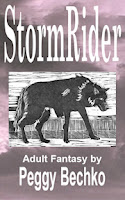Okay, so shoot me, I got creative with 'UnMuddle", but ponder this. Why do you write (no matter what you write)?
To communicate.
So, tell me, what good is it all if the one you’re trying to communicate with can’t easily understand what’s being said?
Whether the person you're writing to is reading a novel, trying to decipher an instruction manual, perusing a travel magazine or just reading a sales ad, if that person you're writing to finds it difficult to follow along, you’ve lost your reader. The book gets closed. The magazine gets laid aside, the advertising is ignored. That’s where Keep It Simple comes in. You've heard of it. KISS. Keep It Simple Stupid (well without the 'stupid' part, because plainly you aren't).
Writing with clarity is tougher than most folks think who aren't writers so, the simpler the better. That’s not to say you’re to write ‘down’ to your reader. It’s not that other people are stupid (well, not many of them are, and plainly my readers and yours aren’t), it’s just that they’re busy. They’re distracted and let’s face it, nobody, whatever their level of ability, wants to have to stop and decode what they’re reading. Just don't want to, don't have to. They can move on and that's not good for you, the writer.
The concept applies well to all your writing. Keep sentences and paragraphs short. Don’t you find it off-putting to be confronted by a sheet filled solidly with print and very little white space? Isn’t it easier to follow down a page that offers some breaks? Maybe it’s dialog or shorter paragraphs for fiction. Perhaps it’s sub-headlines in advertising copy. Could be beautiful pictures in travel magazines. All of those help to draw the reader along, into the flow of the written page. Eye candy, whether text or pictorial.
Generally it's best to use easily understood words. Some writers use huge vocabularies and use them well. Other writers use vocabularies which are much smaller. Hemingway fell into the later camp by the way; Steinbeck too seemed to love single syllable words. That’s not to say you should not use colorful words. Simple and colorful are not exclusive of each other.
The key is clarity. Don’t use a hundred-dollar-word when a five-cent edition will do. This is especially true when you aren’t comfortable with that hundred-dollar-word in the first place. When you write what you are comfortable with it will naturally come across clearly - at least the great majority of the time. Write within your comfort zone. Don't think you have to prove anything.
I personally think all of this is a remnant of childhood. Remember children's books with large print and lots of pictures? Remember that first time when you were young and decided to read a ‘young adult’ book without pictures (well, mostly without, maybe there were a few line drawings at chapter beginnings)? Kind of a shock wasn’t it? I think we continue to carry a little bit of that kid along with us through life. A sort of “hey, where’re the pictures?” kind of attitude.
Reading what you’ve written out loud is a great help when you’re trying to keep your writing simple and clean. Remember, you’re not trying to impress your reader with how big a vocabulary you have or how perfect your grammar or how long a sentence you can produce with all the comas, semicolons and exclamation points in the correct places. Nope, that’s not what you’re doing. What you’re doing, is communicating. Telling a story of some kind. Whether fiction, non-fiction, or advertising, the writer is telling a story. And if you can't read one of your sentences aloud without running out of breath, you're in trouble.
So, think in terms of talking to a friend. If you were talking to a friend would you speaking to impress, or would you simply be relaying a story? Think about it. Through your writing you are communicating - be effective you must be understood.








